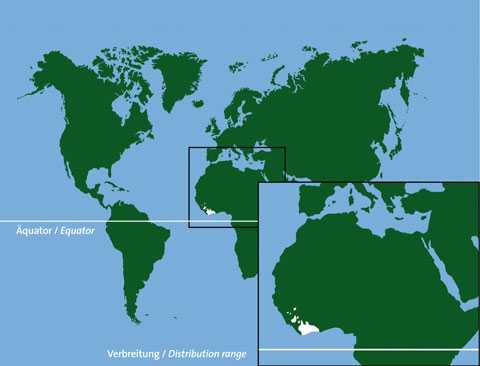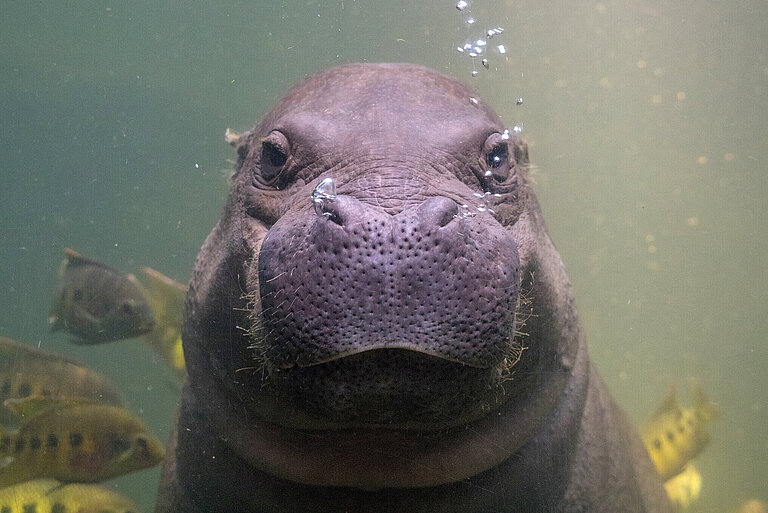Did you know?
Like their large relatives the hippos, pygmy hippos need to return to the water regularly, but they are less tied to this element and when threatened prefer to flee into thick vegetation. As an adaptation to the fact that they spend more time on land, they have less webbing on their feet and their eyes and ears project less prominently than is the case with hippos, which spend more time in deep water. Their raised back is characteristic of animals which regularly move through dense vegetation and helps them to penetrate the rain forest during their nocturnal search for food.
European Endangered species Program
This animal is managed by the European Association of Zoos and Aquaria (EAZA) under the European Endangered species Program.

Characteristics
| Classification | Order even-toed ungulates, family hippopotamus |
|---|---|
| Diet | Swamp and water plants, grass, ferns, fruit, roots and tubers |
| Habitat | Rain and swamp forests alongside streams, lakes or rivers |
| Reproduction | Mating takes place on land or in water; gestation time: about 200 days, one young that is normally born on land; weight at birth about 6 kg; maximum age: above 43 years |
Status according to Red List
More information you will get on the web page of the IUCN Red List.









